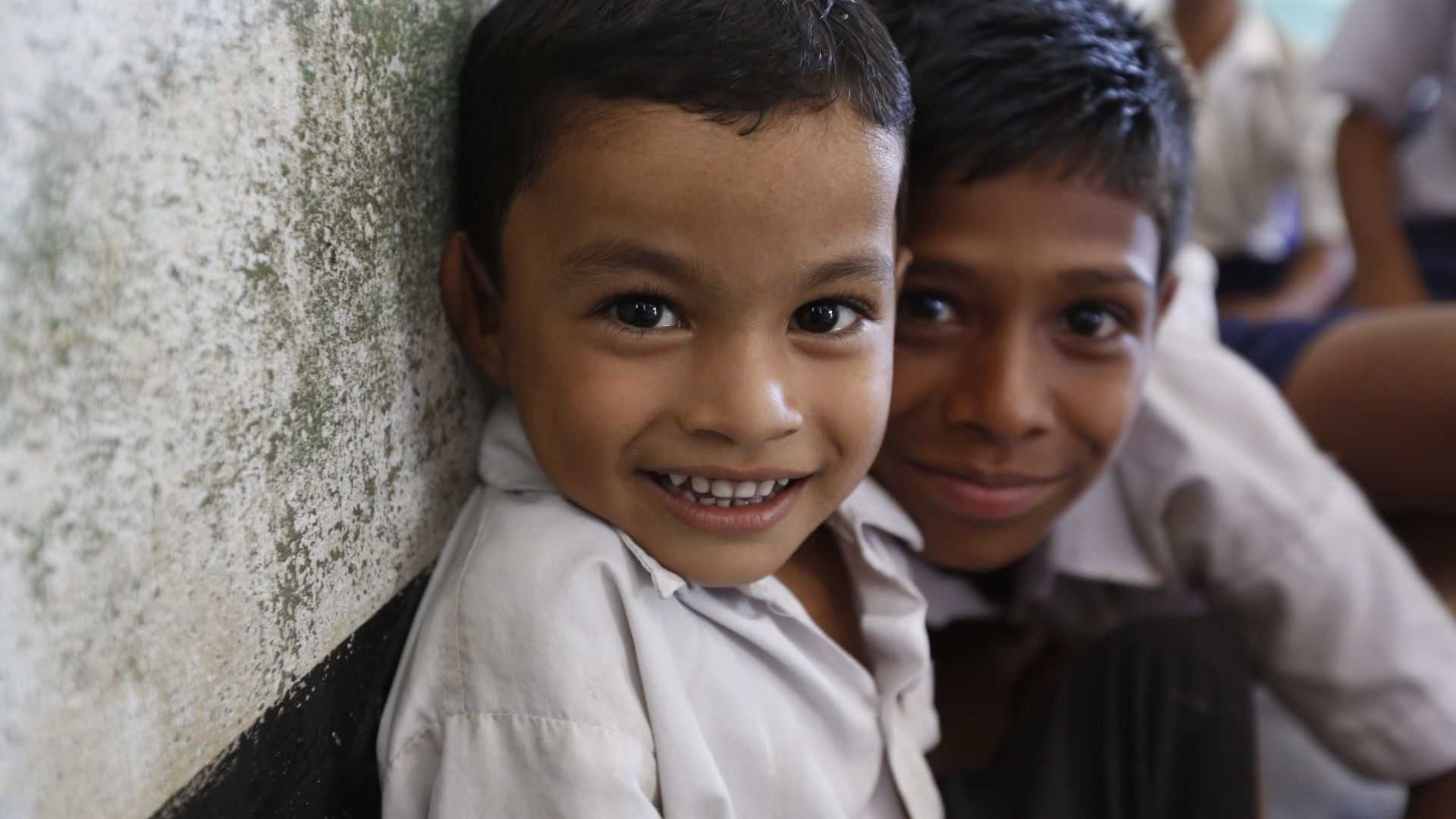Is Adoption allowed in Islam? When examining adoption from an Islamic perspective, it is important to distinguish between the idea of aiding orphans and underprivileged children and the effects of that help. then only we can understand whether Is Adoption allowed in Islam. Because the definition of adoption in Islam is a little bit different from the Western idea of adoption. Let’s delve deeper into whether Is Adoption allowed in Islam.
Helping the Orphans and Underprivileged in Islam

Islam not only accepts but also strongly encourages the idea of aiding the underprivileged and orphans. The impoverished and orphans are frequently regarded as the primary groups eligible for such assistance in all kinds of charitable endeavors. Allah SWT is exceedingly strict when it comes to orphan children’s rights. For instance, He states,
“Those who `swallow’ the property of the orphans unjustly, are actually devouring fire into their bellies and they shall enter the burning fire.” (Quran 4:10)
Read more about the Rights of Orphans in Islam (Rights of Yateems) here.
The idea of helping the needy and orphans and taking them under your protection is totally supported by Islam. If no one is available to care for orphans and vulnerable youngsters, the Islamic government must assume this duty. There is a distinction between Islam and the West in terms of adoption, however. but Is Adoption allowed in Islam the way as a Western culture does?
Different idea of Adoption in Islam
However, there are some differences between Islam and the current Western system when it comes to the implications and legal ramifications of adoption. The idea of adoption in Islam is a little bit different from Western culture.
Adoption in Islam, in the literal sense, is not allowed.
In Western culture, adoption signifies more than just entrusting a kid to someone else’s care. It also means that the child who has been adopted will bear the family name of the adoptive parent.
For instance, if Mr. John Doe adopts a child called Harry Smith, the youngster will eventually become Harry Doe. If the adoption happened when the child was a baby, it’s highly likely that he or she will never learn their true ancestry or family name.
Islam does not recognize this step in the adoption process. The adoption system in pre-Islamic Arabia was comparable to that of the West today; the child even adopts the adopted father’s family name. When Islam arrived, it vehemently denounced this practice.
Using the life of the Prophet Muhammad (s.a.w. ), for example:
Zayd bin Hâritha (Zayd, son of Hâritha) was a slave Khadijah gave the Prophet after they got married. One of the first people to embrace Islam was Zayd. Zayd’s father and uncles travelled to Mecca after learning of his whereabouts and informed Prophet Muhammad that Zayd had been kidnapped by thieves and sold into slavery. He was freed by the Prophet. Zayd, however, resisted leaving Muhammad and returning home with his father. Zayd’s father, Hâritha, expressed his open rage and stated that going forward, “Zayd is not my son.” The Prophet adopted Zayd right away in response. As the son of Muhammad, Zayd became known as Zayd bin Muhammad.
This remained until the Prophet moved to Medina. Zayd was now a married man after having grown up. His marriage, however, did not last.
Regarding Zayd’s divorce, Allah revealed a few verses in which He also addresses the topic of “re-naming” the adopted children. He says,
“Nor has He (Allâh) made your adopted sons your sons. Such is (only) your (manner of) speech by your mouths. But God tells the truth, and He shows the way. Call them by (the names of) their fathers, that is better in the sight of God”. (33:5)
Zayd was once more referred to as Zayd bin Hâritha and not Zayd bin Muhammad after the revelation of this verse. However, the relationship between the Prophet and Zayd was unaffected by this name change. They continued to act as father and son.
Addressing adopted children by the names that belong to their adoptive fathers is against “the truth,” according to the Qur’an, hence they must instead be called by the names of their biological fathers.
Consequences of this Verse
This means that adoption does not alter a person’s relationship with others: it neither ends the child’s blood bond with his biological parents and siblings nor forges a new one between him and his adoptive parents and their offspring.
The practical ramifications of this viewpoint, on the one hand, are that all the laws that apply between blood relatives are still in effect: for instance, the child will still be considered a mahram, which means that an adopted child cannot wed his real siblings; he or she is also entitled to an inheritance from the real parents; and there is no requirement for hijab between the child and his or her real family.
(Given the adoption system in the West, it is very likely that someone may wed their siblings!)
However, the guidelines that apply to unrelated people still hold true. Adoption, for instance, wouldn’t result in mahramiyyat between the child and the new family; instead, an adopted girl would be required to observe hijab in front of her adoptive father and brothers, and an adopted son would be required to do the same in front of his mother and sisters. The adopted child could even get married to the adoptive parents’ child. The basis for inheritance in Islam is uterine relationship:
“Those related by blood are more entitled to (inherit from) each other in the Book of Allah.” (8:75)
To the extent that they want, the adoptive parents may, nevertheless, set aside up to one-third of their estate for the benefit of their adopted child.
Foster & Adoption Relationship
Only in one adoption situation—when the adopted child is younger than two years old and is also breastfed exclusively by the adoptive mother for at least one day and one night—is a sort of semi-familial relationships and mahramiyyat established between the adopted family and the adoptive child.
As a result, a foster (rizâ’i) relationship is established, and the child becomes a member of the new family and is not subject to hijab or the prohibition against matrimony with the adopted parents’ biological children. However, even a rizâ’i child has no claim to the estate of the deceased in cases of inheritance.
However, as was already indicated, the adoptive parents are allowed to set aside up to one-third of their assets in memory of their adopted child.
Guardianship (Kafala) in Islam:
Differences from Adoption: Islam advocates the concept of kafala, which differs from adoption. Kafala is a legal guardianship that provides care, support, and love to a child without severing their ties to their biological family.
Legal Aspects and Responsibilities: Kafala establishes a temporary parental role, ensuring the well-being of the child and their rights but without granting inheritance or changing the child’s family name.
Conclusion: Is Adoption allowed in Islam?
So Is Adoption allowed in Islam? No, Adoption is allowed in Islam. Not in the same manner as Western culture does. From the above discussions, we can conclude that:
1) Islam does not allow for adoption, in the technical sense. We can only take care of an orphan child through Kafala system.
2) It is not permitted to change the adopted child’s family name, nevertheless.
3) If the infant was under two years old and was breastfed exclusively by the adoptive mother for at least one day and one night (or fifty times in total), the child will be considered a mahram to the new household and a hijab is not required.
4) The child will continue to be a non-mahram to the new family if, as noted above, breastfeeding was not done.
5) Whether an adoption is rizâ’i or non-rizâ’i, the adopted kid is not entitled to inherit from the adoptive parents’ inheritance and is also not barred from inheriting from the real parents’ estate. (The adoptive parents may, however, write a payment for up to one-third of their estate in favor of their adopted kid.)
It is important to stress that wearing the hijab shouldn’t be a roadblock to adopting an orphan or a needy child. Muslim women are only required to wear the hijab at most because they are expected to always dress decently.
This may seem strange to those accustomed to the Western way of life, but it actually occurs even in extended family homes, such as when two married brothers live with their families under one roof. In these situations, the wives and bâligha daughters must observe hijâb by dressing modestly and covering their heads with a scarf.
We you gained clarity about whether Is Adoption allowed in Islam. Read more Islamic Blogs or Follow us on social media for daily Islamic reminders.
FAQs on Adoption in Islam:
Can Muslims adopt a child from a different religious background?
Yes, Muslims can adopt children from different religious backgrounds through the concept of kafala.
Are there any financial obligations associated with kafala?
Yes, guardians (kafil) are responsible for providing for the child's basic needs, just as biological parents would.
Can a child under kafala inherit from their guardians?
No, under kafala, the child does not inherit from their guardians, as inheritance rights remain with their biological family.
Is it permissible for unmarried individuals to adopt or become guardians?
Yes, unmarried Muslims can become guardians through the process of kafala, provided they fulfill the necessary criteria.
What should prospective guardians consider before adopting a child under kafala?
Prospective guardians should consider their ability to provide a stable and nurturing environment for the child, ensuring they can meet the child's physical and emotional needs.






